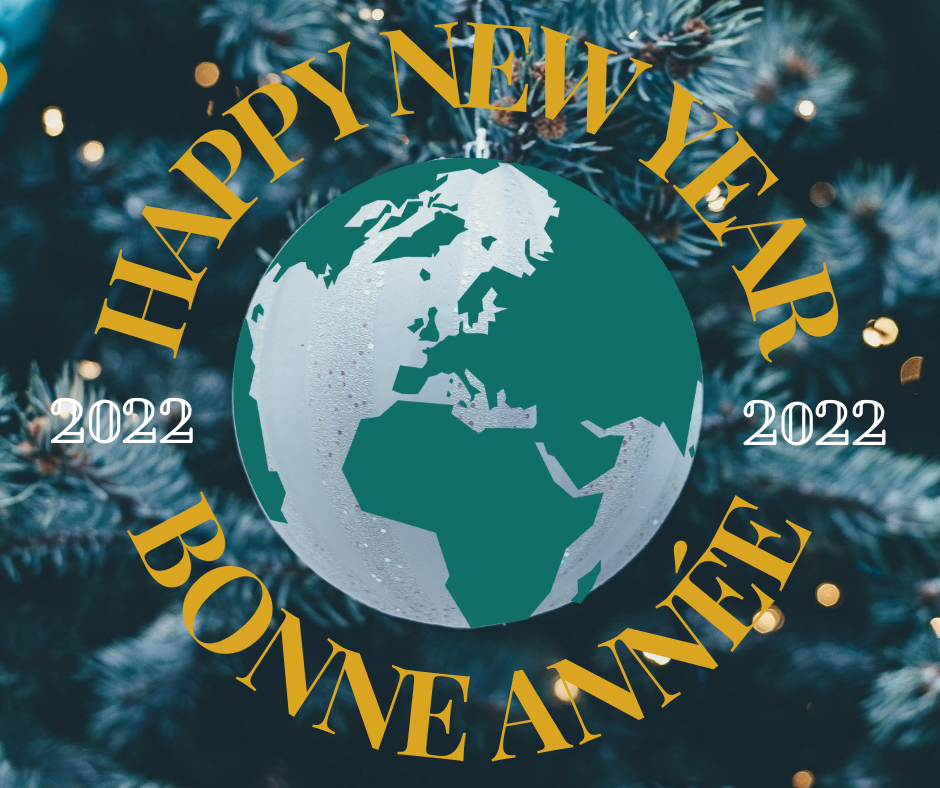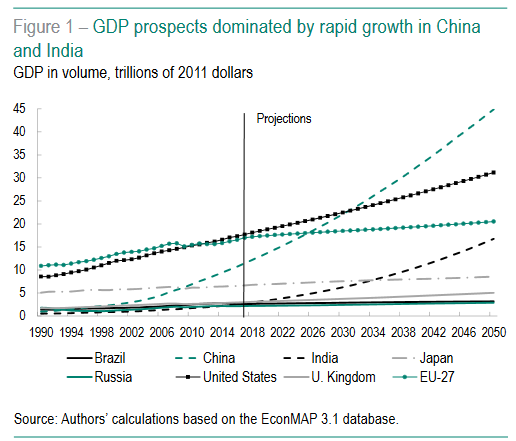Pandemics, global warming, food security, ageing, depletion of certain raw materials... our economies are faced with global problems, calling for long term actions and raising intergenerational issues. To guide economic policies, it is therefore essential to have a sound framework for reflection. The MaGE (Macroeconometrics of the Global Economy) model, developed by CEPII, makes it possible to draw the fundamental trends of the world economy in the long term, up to 2050. Assuming that the current dynamics of growth and technological catch-up will continue, and taking into account demographic dynamics, the balance of economic power will be strongly transformed over the next generation. Above all, energy consumption is expected to continue to grow at a sustained rate, and even double, despite efforts to improve energy efficiency. Ambitious policies to decarbonize our economies will be necessary to make these prospects for economic growth sustainable. Lionel Fontagné, Erica Perego and Gianluca Santoni.
>>> |
Corporate subsidies are a growing source of trade tensions between governments. To complement the existing efforts in building a reliable factual base on this issue, the latest Global Trade Alert report proposes a detailed assessment of the scale, form, build-up, and global reach of the corporate subsidies of China, the European Union and the United States. The main results of this extensive analysis are being presented and discussed. Speakers: Simon J. Evenett (St. Gallen University), Susan Stone (OECD), François Chimits (CEPII and MERICS).
>>> |
- Free Trade Agreements and the Movement of Business People
Thierry Mayer, Hillel Rapoport, Camilo Umana Dajud - Love of Variety and Gains from Trade
Christophe Gouel, Sébastien Jean - The Impact of Common Law on the Volume of Legal Services: An International Study
Enzo Dia, Jacques Melitz
- Looking Ahead to 2050: Where are the Current Dynamics Steering the Global Economy?
Lionel Fontagné, Erica Perego, Gianluca Santoni
- Economic Modelling
Properly capturing tariff rate quotas for trade policy analysis in computable general equilibrium models
Yaghoob Jafari, Wolfgang Britz, Houssein Guimbard, Jayson Beckman
 |
| EQCHANGE updated up to 2020 EQCHANGE is a global database of annual indicators on effective exchange rates. It includes two sub-databases containing data on nominal and real effective exchange rates, and equilibrium real effective exchange rates and corresponding currency misalignments for advanced, emerging and developing countries.
>>> |
We are recruiting: economist - international migrations (deadline for applications January 7, 2022) economist - international macroeconomics and finance (deadline for applications January 31, 2022) >>> |
- Contact us
- Our other sites
 |
ISSN: 1255-7072
Editorial Director : Antoine BouëtManaging Editor : Evgenia Korotkova












